Temperance in everything is requisite for happiness.
BENJAMIN HAYDONSatan is to be punished eternally in the end, but for a while he triumphs.
More Benjamin Haydon Quotes
-






-






It is highly convenient to believe in the infinite mercy of God when you feel the need of mercy, but remember also his infinite justice.
BENJAMIN HAYDON -






Genius in poverty is never feared, because nature, though liberal in her gifts in one instance, is forgetful in another.
BENJAMIN HAYDON -






The safest principle through life, instead of reforming others, is to set about perfecting yourself.
BENJAMIN HAYDON -







Genius is nothing more than common faculties refined to a greater intensity. There are no astonishing ways of doing astonishing things. All astonishing things are done by ordinary materials.
BENJAMIN HAYDON -





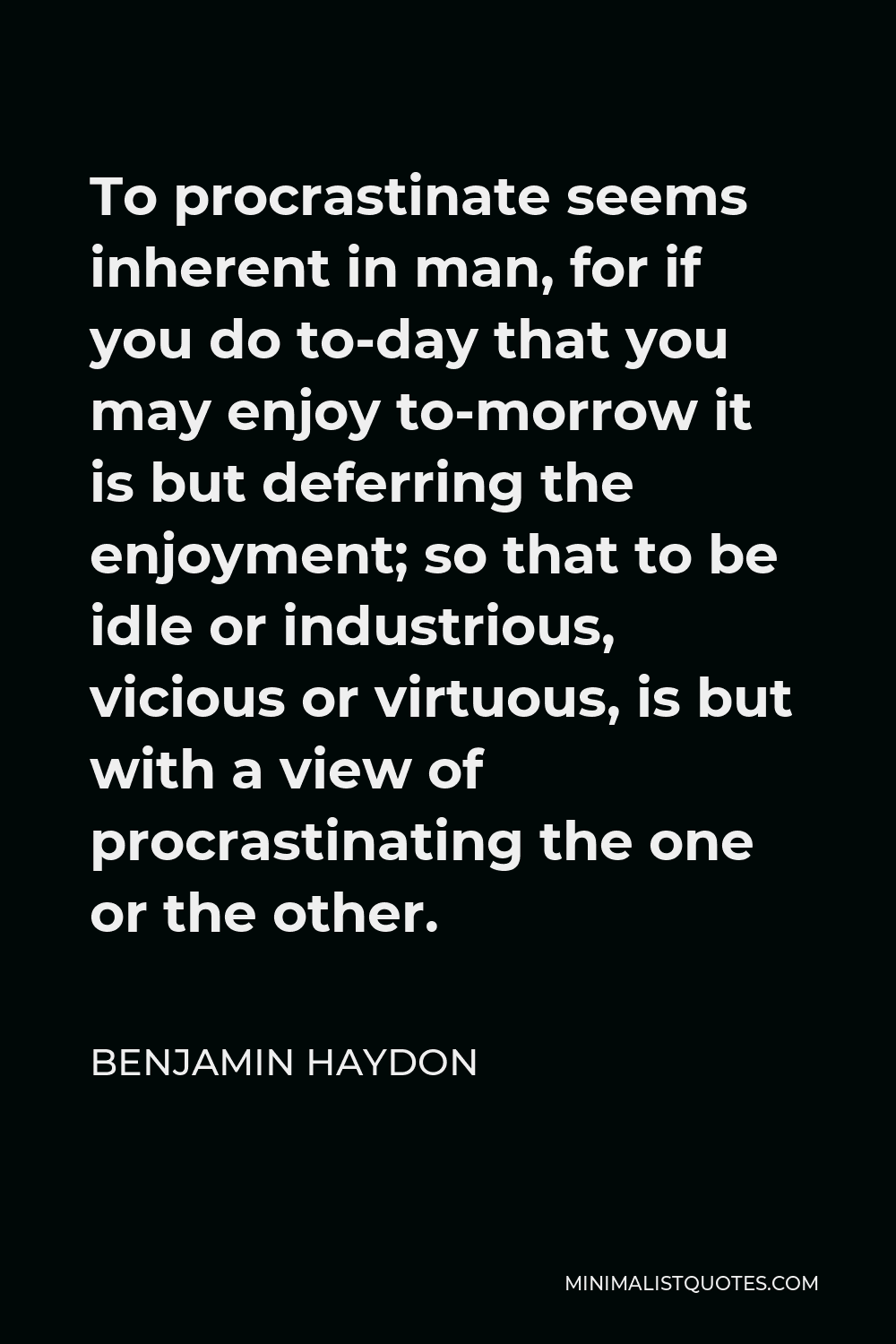
To procrastinate seems inherent in man, for if you do to-day that you may enjoy to-morrow it is but deferring the enjoyment; so that to be idle or industrious, vicious or virtuous, is but with a view of procrastinating the one or the other.
BENJAMIN HAYDON -





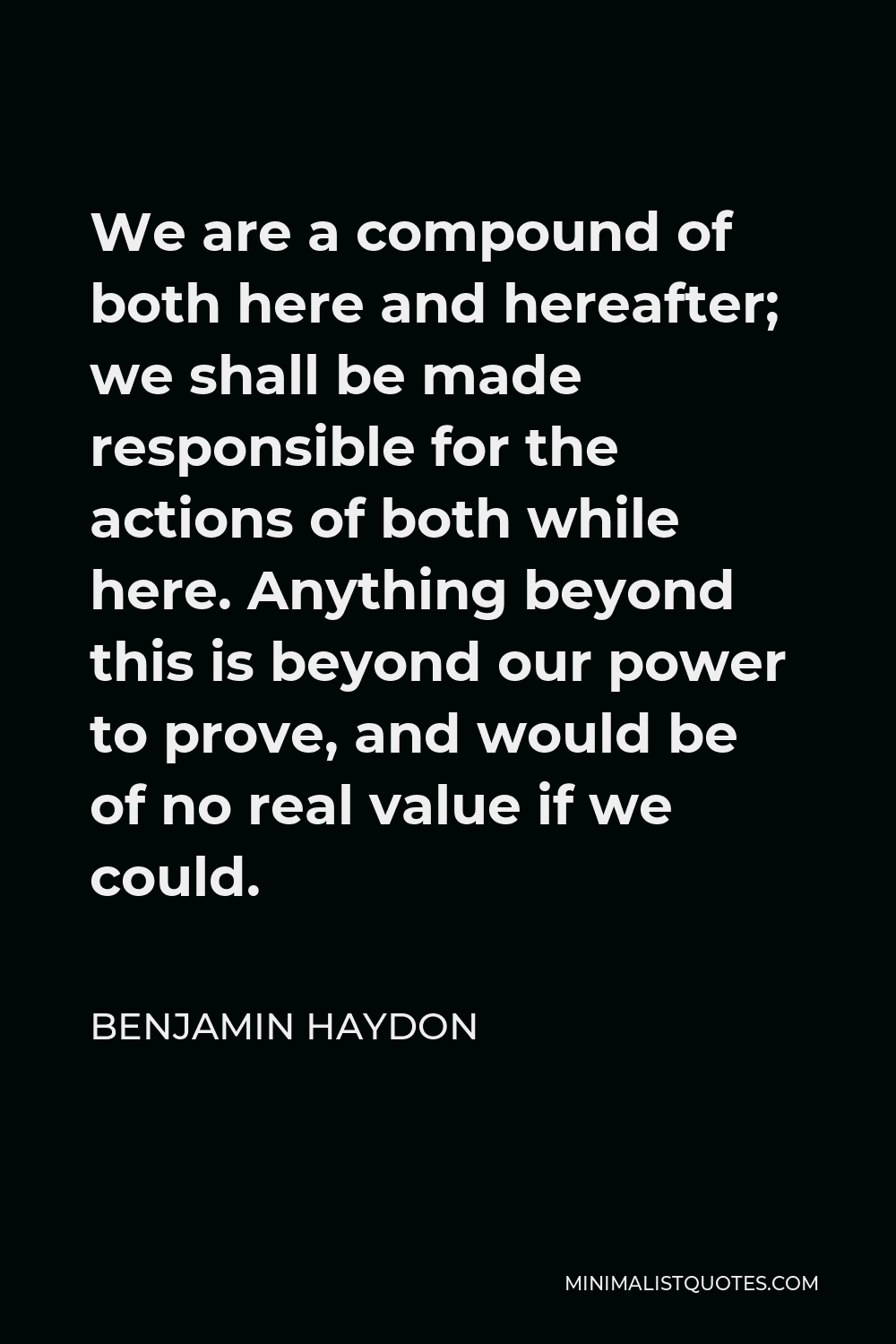
We are a compound of both here and hereafter; we shall be made responsible for the actions of both while here. Anything beyond this is beyond our power to prove, and would be of no real value if we could.
BENJAMIN HAYDON -





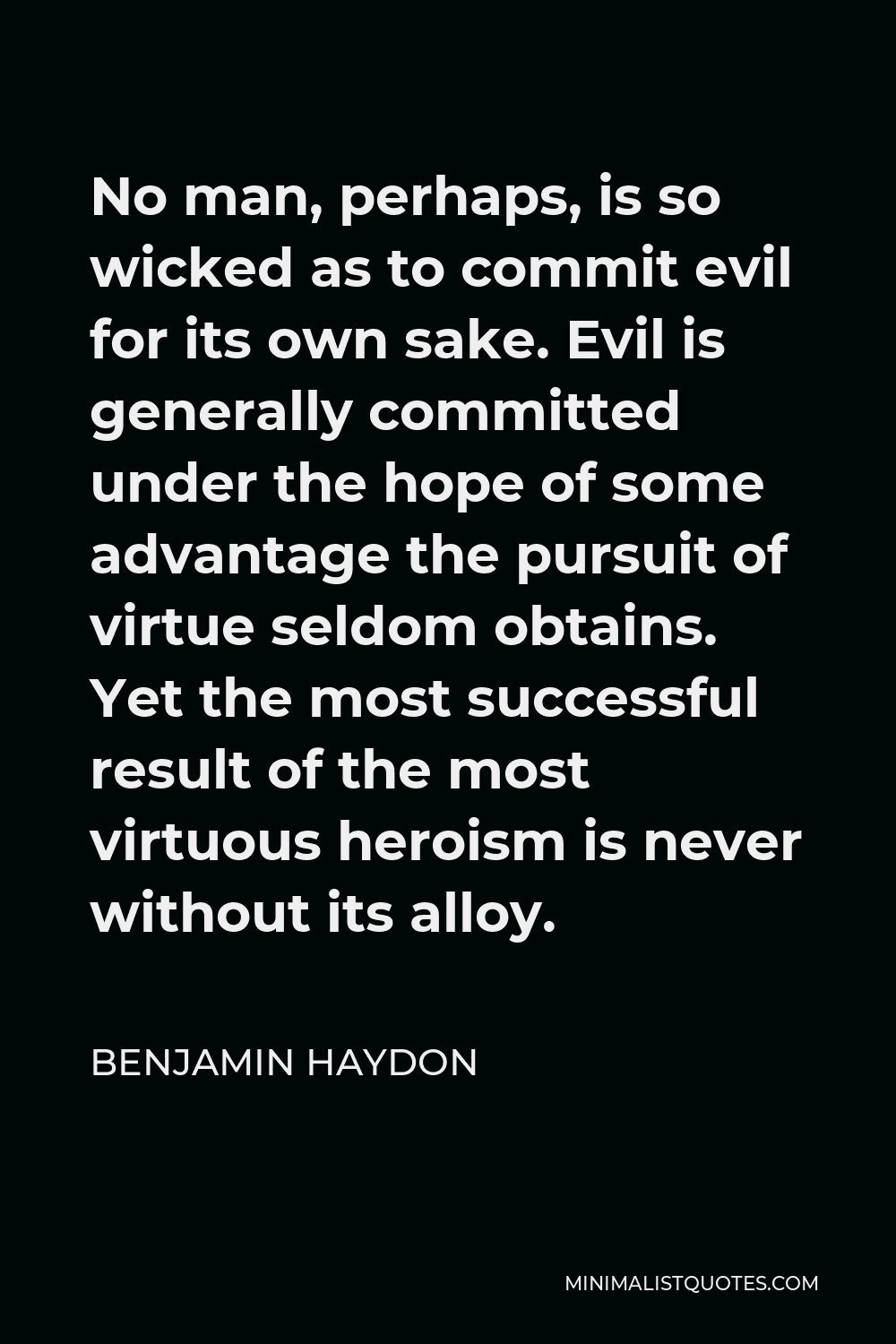
No man, perhaps, is so wicked as to commit evil for its own sake. Evil is generally committed under the hope of some advantage the pursuit of virtue seldom obtains. Yet the most successful result of the most virtuous heroism is never without its alloy.
BENJAMIN HAYDON -






Invention is totally independent of the will.
BENJAMIN HAYDON -





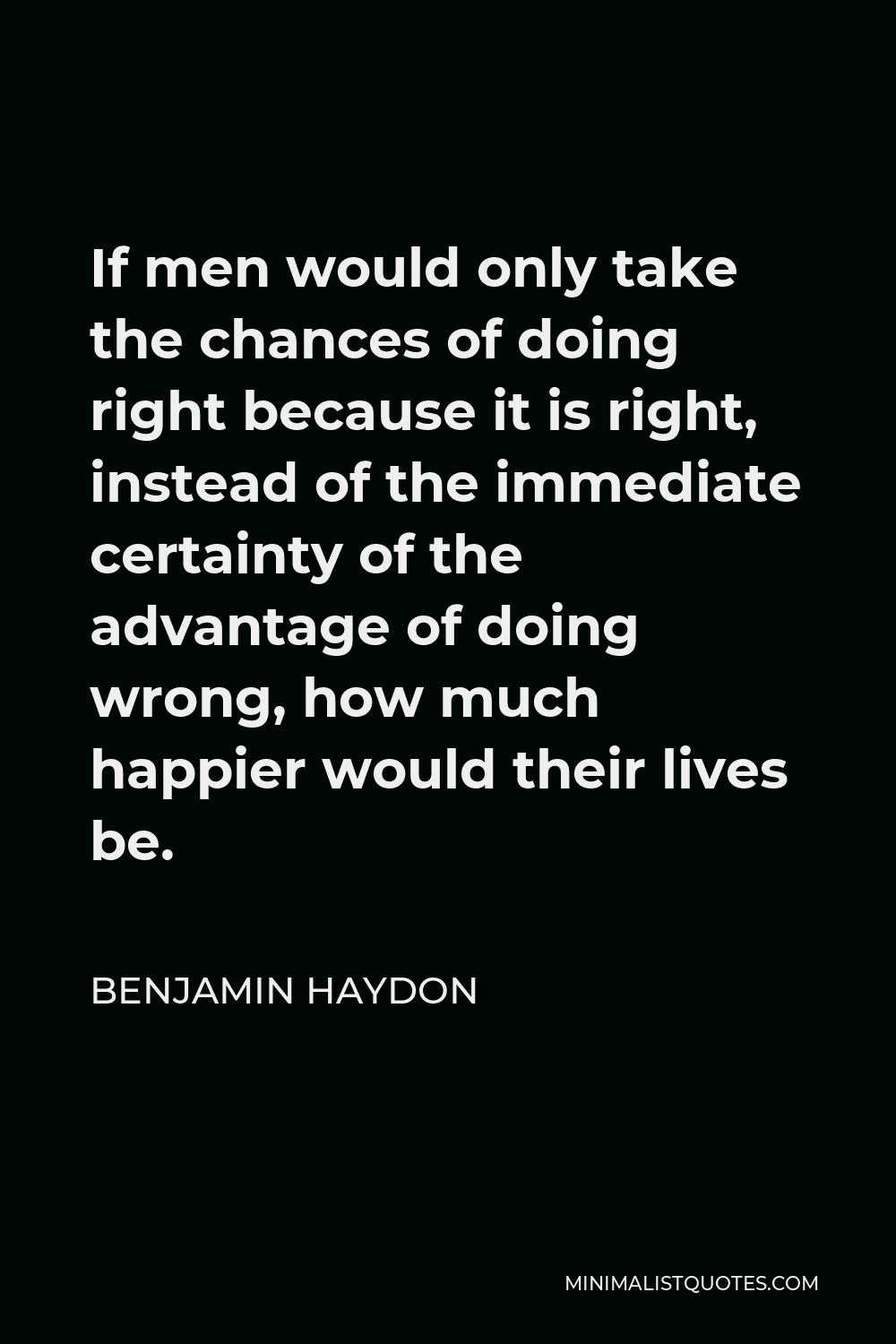
If men would only take the chances of doing right because it is right, instead of the immediate certainty of the advantage of doing wrong, how much happier would their lives be.
BENJAMIN HAYDON -






Do your duty, and don’t swerve from it. Do that which your conscience tells you to be right, and leave the consequences to God.
BENJAMIN HAYDON -






When a man is no longer anxious to do better than well, he is done for.
BENJAMIN HAYDON -





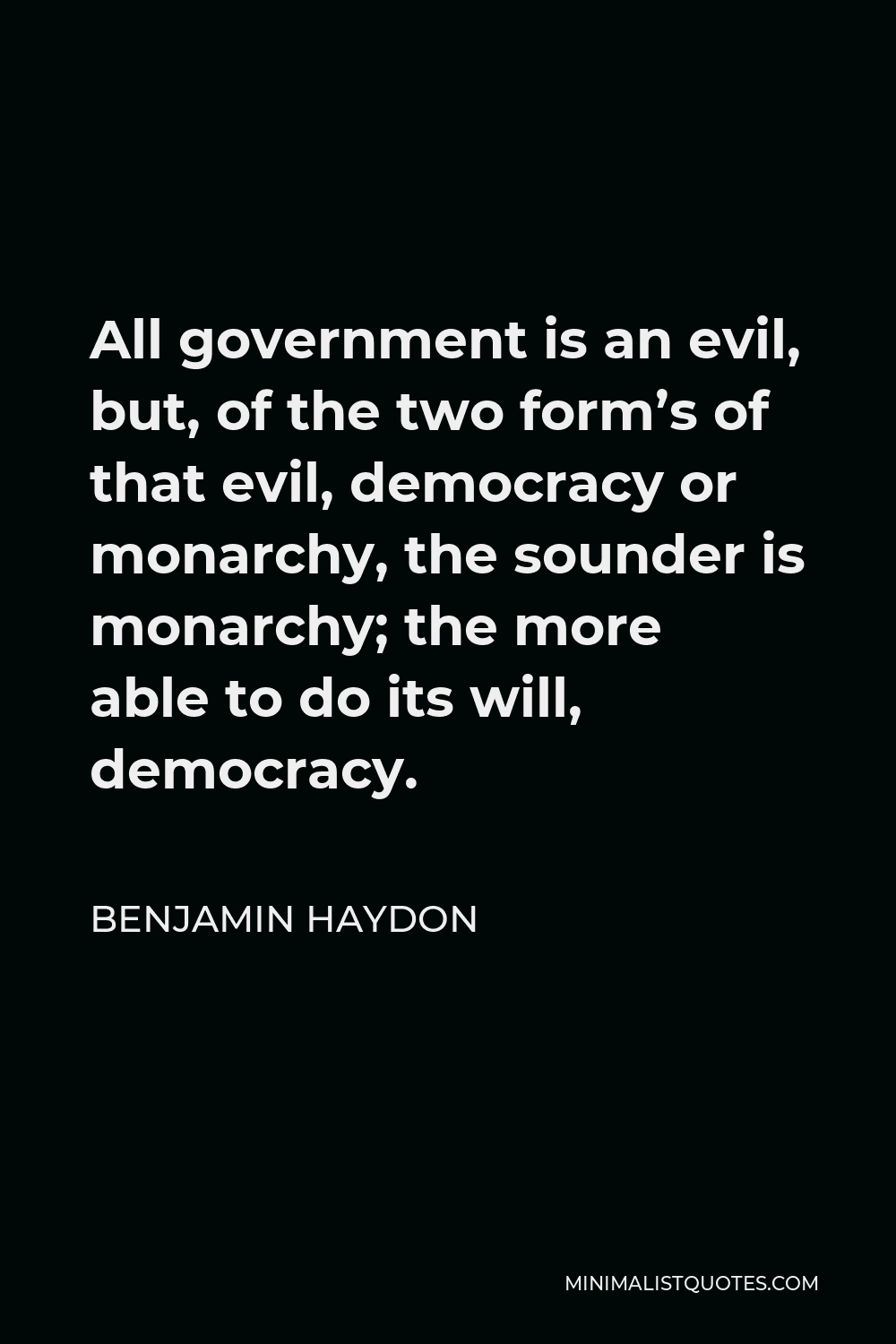
All government is an evil, but, of the two form’s of that evil, democracy or monarchy, the sounder is monarchy; the more able to do its will, democracy.
BENJAMIN HAYDON -






Mistrusts sometimes come over one’s mind of the justice of God. But let a real misery come again, and to whom do we fly? To whom do we instinctively and immediately look up?
BENJAMIN HAYDON -





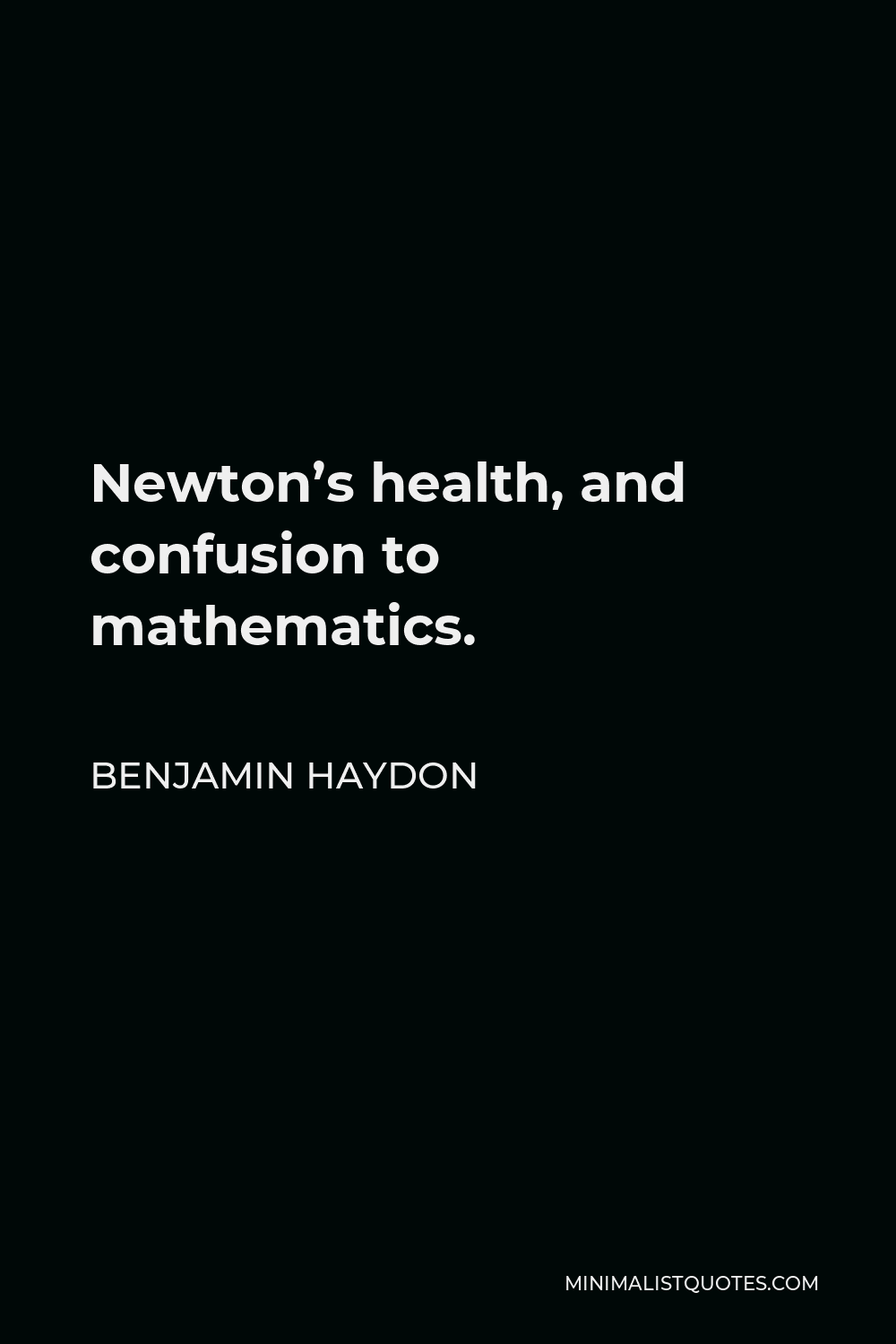
Newton’s health, and confusion to mathematics.
BENJAMIN HAYDON -





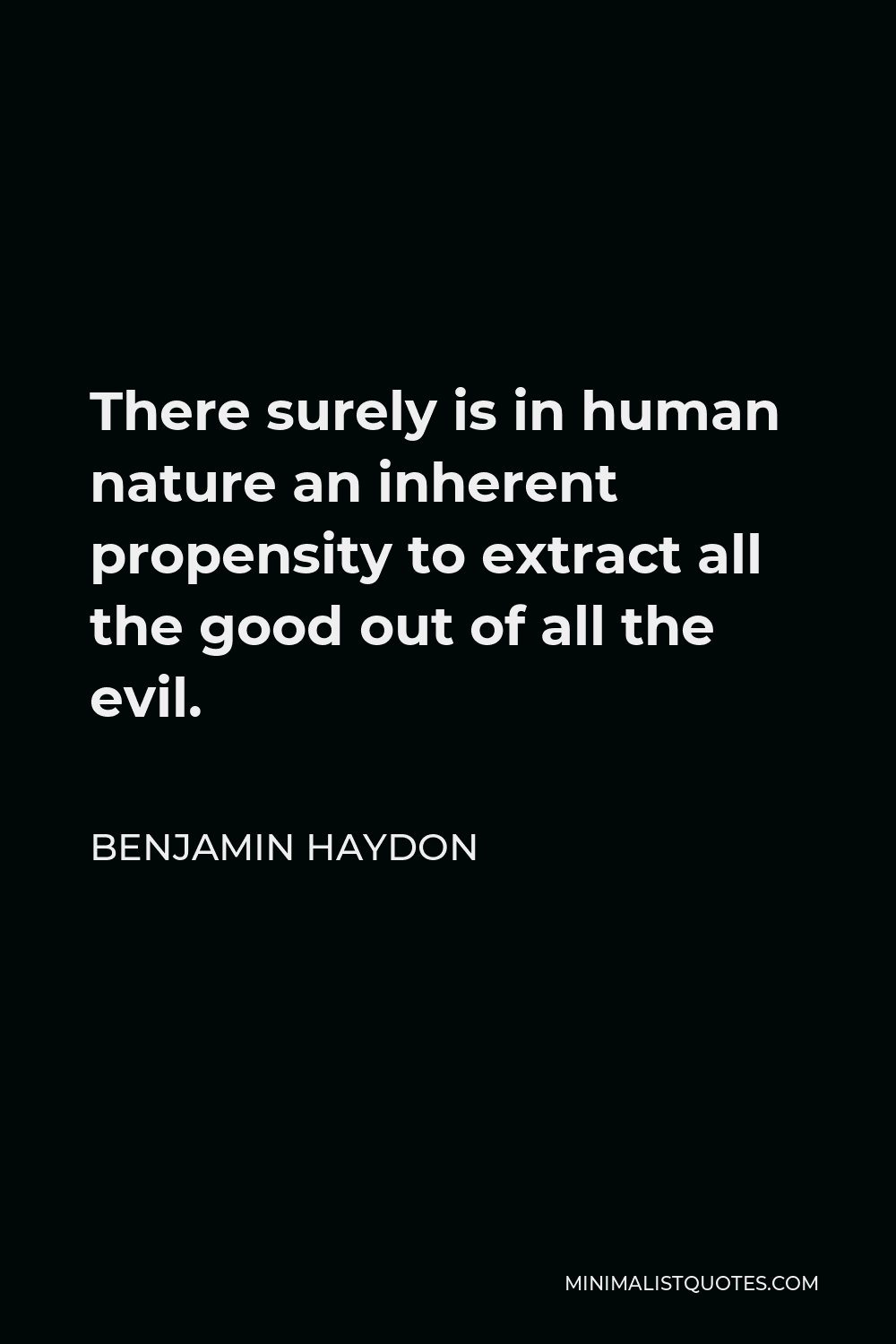
There surely is in human nature an inherent propensity to extract all the good out of all the evil.
BENJAMIN HAYDON







